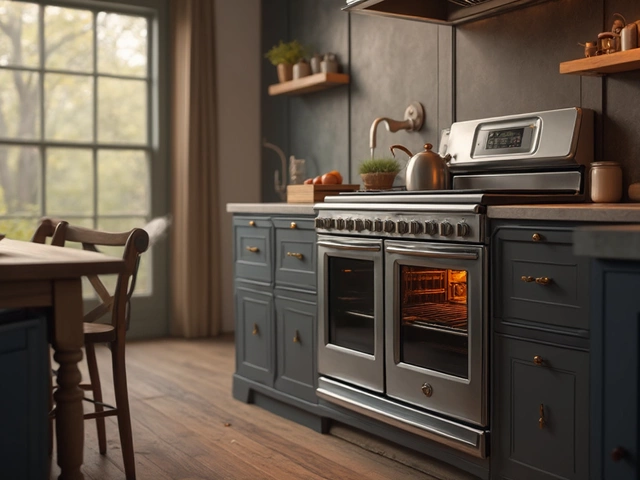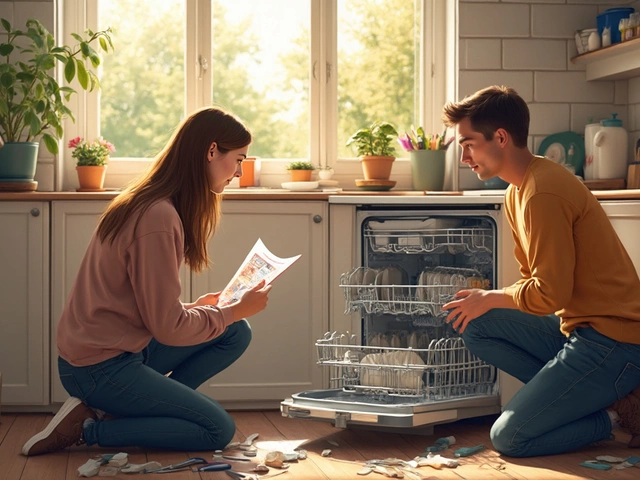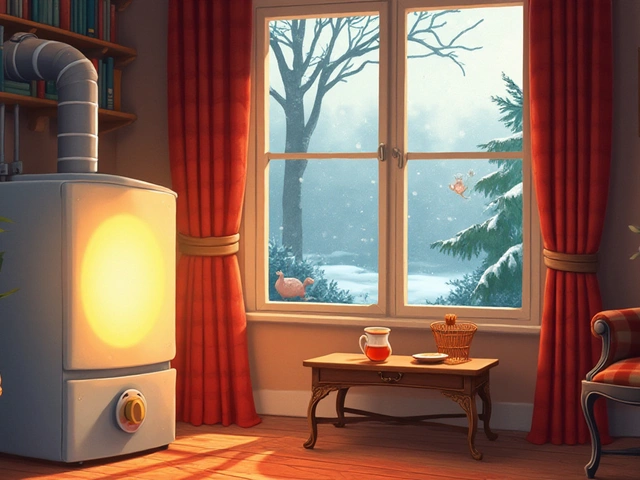If your home feels like a freezer, you’re dealing with a heating emergency. The first thing to do is stay calm and figure out what’s actually broken. Sometimes the problem is a simple reset, a tripped breaker, or a clogged filter. Other times you need a qualified technician fast – especially with boilers, heat pumps, or hot water systems that could pose safety risks.
Start by checking the power supply. Is the circuit breaker on? If a breaker has tripped, flip it back and see if the heater turns on. Next, look at the thermostat. Make sure it’s set to "heat" and the temperature is higher than the room temperature. If the thermostat has dead batteries, replace them – a common cause of silence.
For heat pumps, listen for the fan. If it runs but no warm air comes out, the outdoor unit might be frozen. Switch it to "defrost" mode if your model has one, or turn the system off for 15 minutes to let any ice melt. Boilers often make a whistling noise when air is trapped in the system. Bleeding the radiators can release that air and restore heat quickly.
Hot water emergencies are a bit different. No hot water? Check the water heater’s pilot light (for gas models) or the reset button (for electric units). If the water is lukewarm, a sediment buildup could be the culprit – flushing the tank can help, but it’s a job for a pro if you’re unsure.
When you’ve run the basic checks and nothing works, it’s time to call a specialist. Call a local, reputable service like Bognor Regis Appliance Repair Experts. Explain the symptoms, what you’ve already tried, and any safety concerns (like gas smells or water leaks). This lets the technician bring the right tools and parts on the first visit.
While you wait for the pro, keep safety first. Turn off the heating system’s main power if you suspect an electrical fault. Shut off the gas supply if you smell gas – go outside and call the gas emergency line. For water leaks, turn off the main water valve to prevent flooding.
Don’t try to dismantle a boiler or heat pump yourself unless you’re trained. Even a simple mistake can cause damage or a dangerous situation. Instead, focus on keeping the area clear, ventilating if there’s a gas scent, and noting any error codes displayed on the unit.
Once the expert arrives, they’ll perform a quick diagnostic, clear any faults, and advise on whether a repair or replacement makes sense. If the heating system is old and constantly breaking down, they’ll discuss energy‑efficient upgrades that could save you money in the long run.
Remember, a heating emergency doesn’t have to ruin your day. A few basic checks can solve minor hiccups, and a trusted local repair service can get your home back to a comfortable temperature fast and safely.

Wondering how long you can cope with a broken boiler? Get clear facts, repair timelines, survival tips, and legal details so you don’t get left in the cold.

Curious about how your home appliances actually work? Get a full breakdown of what happens inside, troubleshooting tips, and smart ways to keep everything running smoothly.

Choosing an oven that stands the test of time goes beyond looks and price. This article delves into which oven brands are celebrated for their durability. We'll explore how build quality, materials, and innovative technologies play a role in longevity. Plus, you’ll get insider tips on maintaining your oven for years to come. Discover how to make a smart choice today that benefits you tomorrow.

Repairing a glass hob is an essential task for maintaining a functional and modern kitchen. The cost of fixing a glass hob can vary greatly depending on the damage's severity and the required repair type. This article delves into the various factors influencing repair costs, from crack treatment to replacement solutions. It also provides tips for maintenance to prolong the lifespan of your hob and prevent future damage.

When your dishwasher starts acting up, a quick, accurate diagnosis can save you from bigger headaches and pricey repairs. This article walks through simple methods to spot dishwasher problems, from weird noises to stubborn leaks. You'll learn what to check first, how to tell if it's a DIY fix, and when it's time to call in a pro. Handy tips and real-life examples make this guide easy to follow, even if you're not a born handyman. Don't let a small hiccup become a kitchen disaster — know what to look for and act fast.

Neglecting boiler maintenance can lead to a series of unfortunate events, from reduced heating efficiency to costly breakdowns. A neglected boiler could become a safety hazard, potentially increasing the risk of carbon monoxide poisoning. Regular servicing can enhance your boiler’s longevity, ensuring a warm home environment during cold spells. Discover why these routine check-ups are more crucial than many realize and learn how they can save you from avoidable expenses.